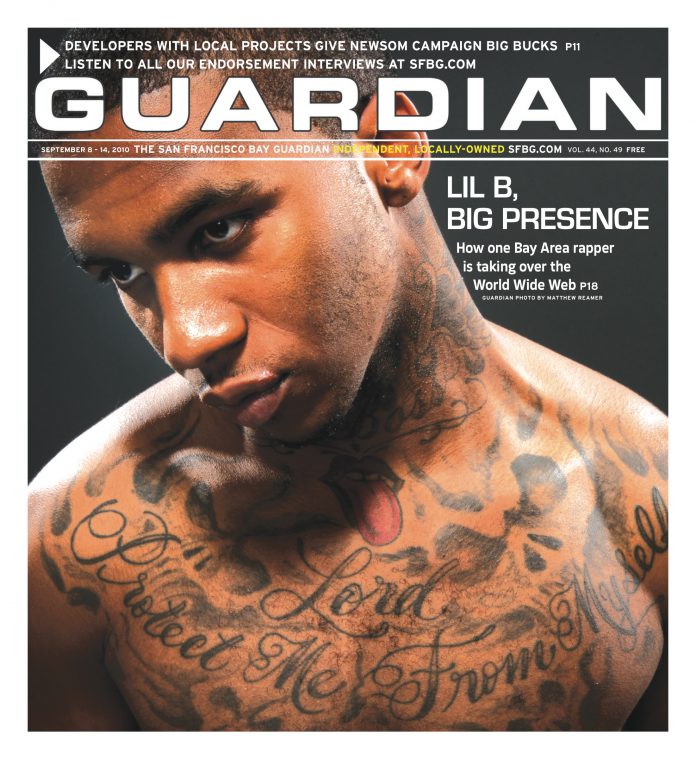arts@sfbg.com
FILM Alternately slavish and critical, simultaneously buying into and subtly resisting the hype, The Agony and the Ecstasy of Phil Spector is a bit like the renowned producer himself, who said this to biographer Mick Brown in 2007’s Tearing Down the Wall of Sound: the Rise and Fall of Phil Spector: “I have a bipolar personality … I have devils inside that fight me. And I’m my own worst enemy … I would say I’m probably relatively insane.”
Director Vikram Jayanti coproduced the Oscar-winning When We Were Kings (1996), yet seems to be more interested in American celebrity Babylons of late, à la The Golden Globes: Hollywood’s Dirty Little Secret (2003). You can see why he scored the interview with Spector at the center of Agony, since he gets on board the musicmaker’s bifurcated, multichannel tip. The doc is both fascinating and monotonous, respectful of Spector’s achievements as well as the sensation surrounding his blighted celebrity. The filmmaker stays away from the specifics of the night in 2003 when Lana Clarkson was found dead at Spector’s mansion, while recontextualizing the producer’s words and music with images culled from the murder trial and other footage. The end result is an innuendo-laden pastiche that resembles an echo chamber reverberating with all the doomed dramatics of “He Hit Me (It Felt Like a Kiss).”
Unavoidable, weirdly unblinking, and placed like a crazy diamond in front of John Lennon’s ivory “Imagine” grand piano is the wiggy wonder himself, rambling about such tidbits as his explosive courtroom ‘do (“It was a tribute to Albert Einstein and Beethoven. That day it got a little extreme”). In conversation, Jayanti dwells on the sunnier side of Spector’s checkered history: no mention is made of his alleged pistol-waving at the Ramones during the making of 1980’s End of the Century, or his reputed mistreatment of ex-wife and Ronettes star, Ronnie Spector — likely a condition of the interview. But the director manages to get in a scattershot series of thrusts and parries concerning the man and his guilt or innocence, pairing courtroom scenes — the image of a spent gun beside Clarkson’s twisted feet, a sphinx-like Spector in all his pop-Godfather pin-striped finery — with B&W TV clips of his now-classic, far-from-disposable songs.
The musical roll call is impressive, including the eerie, elegiac “To Know Him Is to Love Him” with Spector himself strumming guitar as part of the Teddy Bears and warbling to his dead father (who, eerily, committed suicide by “blowing his brains out,” as Spector puts it); the truly exquisite “Spanish Harlem”; and such rock ‘n’ roll Rosetta stones as “Then He Kissed Me” and “Be My Baby.” Subtitles by author Brown blow up the historical importance of the music, which could have easily stood on its own, and add to the po-mo swirl of information surrounding the man, the career, and the comedown. Yet we don’t hear from Spector’s crucial vocalists, who, like Darlene Love of the Crystals, struggled to find recognition beyond the producer’s Wall of Sound power, or the artists, who arguably tended to chafe against the producer’s overriding vision.
Still, to the Jayanti’s credit, Agony‘s strange parallels stay with you: Clarkson, in blackface, impersonates Little Richard (in a failed bid to resurrect her comedy career), around the time Lennon is heard on the soundtrack singing “Woman is the Nigger of the World”; Spector rattles on about how he wasn’t surprised when Lennon was shot (“People wanted to become famous by killing him, and if you were neurotic and crazy enough … “) before a prosecutor offers, “Lana Clarkson wasn’t an anonymous nobody who deserved a bullet to her head.” Over it all looms the so-called legend — a victim, yes, as he implies at the start, but one who has fallen prey to his own press, and to his own eternally flaming ego.
THE AGONY AND THE ECSTASY OF PHIL SPECTOR opens Wed/10 at the Roxie.

